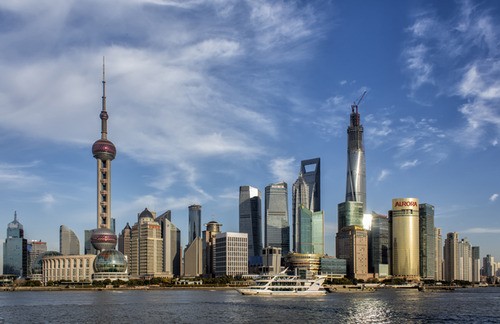Mexican Reforms Please Foreign Investors (BP CVX AMX T BUD PEP)
Post on: 16 Март, 2015 No Comment

Two years into his first term, Mexican President Enrique Peña Nieto is following through on radical campaign promises he made to Mexican citizens for sweeping multi-industry reform. The reforms, ranging from anti-trust laws to education overhaul, are a long time coming. Mexico has been historically rife with bureaucratic and political corruption, state-controlled monopolies and limited sources of revenue. In a bid to widen the scope of competition for businesses, Peña Nieto has geared up regulation policies and invited foreign investors to set their sights on Mexico’s marketplace. (For more information on this topic, see: Mexico .)
Energy
The reform of Mexico’s exclusive energy sector has excited foreign investors, and the US Energy Information Agency estimates the move will increase long-term oil production by 75%. Presidents before Peña Nieto have promised reform of the country’s vast resources, but fallen woefully short in delivering results. José López Portillo, president during the discovery of huge oil deposits in the Gulf of Mexico in the late 70s, not only failed to reform the government, but presided over the country’s debt crisis in the early 1980s. Reforms following this catastrophe were eclipsed by political scandal and violence resulting in another financial collapse.
Mexico is the third-largest oil producer in the Americas and houses vast shale gas resources. The government has controlled the hydrocarbons industry since it was nationalized in 1938, bringing in an impressive one-third of the nation’s revenue via state-controlled Pemex. Thanks to new regulatory measures, Pemex will be forced to reduce its hold on the industry and held subject to limits set on the extraction, production and distribution of oil, gas and electricity. Already Pemex has signed a cooperation memorandum with Lukoil, Russia’s second largest oil producer, to share information on the process of tapping the deep water and shale deposits.
oronto-based Pacific Rubiales (one of the largest independent oil companies operating in South America) plans to spend $1 billion in Mexico, and major producers like British Petroleum (BP ), Chevron (CVX ) and Royal Dutch Shell (RDS.A ) have expressed interest.
Telecommunications
Telecommunications laws were recently passed that promote competition, improve coverage and lower costs. As the Mexican economy has grown. so has consumer demand from a burgeoning middle class with higher disposable incomes for better wireless service and smartphone availability. Mexico has the second largest economy in Latin America and is currently experiencing strong economic growth, creating an attractive climate for investors at a time when the government is cracking down on industry power. Carlos Slim’s América Móvil (AMX ) dominates 70% of the telecommunications sector, and Telmex, which no longer has a monopoly on phone services, still controls 50% of all local access.
Telecom monopolies are rushing to shed assets and share network infrastructure to avoid government intervention. Mobile internet adoption is currently in its infant stages in Mexico, allowing leading foreign firms to bring their expertise and quality to meet customer demand at a time when smartphone prices are on the decline.
AT&T (T ) announced its acquisition of wireless service provider Iusacell for $2.5 billion dollars, establishing the first-ever North American Mobile Service area covering 400 million consumers and businesses in Mexico and the U.S. Network equipment maker Cisco Systems (CSCO ) is investing $1.35 billion in both a support center and manufacturing operations.
The Progress of Reform and a Dubious Population
The Mexican government wants to attract investors (and build their confidence ) by strengthening its credit bureaus and increasing banking competition. In the first nine months of 2013, $28 billion of foreign investment monies entered Mexico, led by Anheuser-Busch’s (BUD ) $13 billion acquisition of Grupo Modelo. Pepsico (PEP ) unveiled a five-year plan to bring 4,000 jobs, spend $5 billion to grow its food and beverage business and add new manufacturing plants. Nestle also announced a five-year plan to invest $1 billion in two new Mexican factories and produce goods that will be exported to Latin America.
However, Mexican citizens have seen the benefits of previous foreign direct investments (FDIs) fall exclusively to a privileged few. Decades of corruption and bureaucracy have formed a deep-seated distrust for the government among the public. To make matters worse, the government has not done enough to explain the nature and outcome of the new rules. Transparency is non-existent and the public fears the new reforms will only further bankroll crooked politicians and businessmen.
The biggest problem Mexico faces is violence and drug-related crime. Organized crime and corruption has infiltrated nearly every pocket of the country’s infrastructure, and in September the world stood by in shock as 43 protest-bound students disappeared near Iguala, Mexico, reportedly at the local mayor’s request. Only after pressure from protestors (who assembled to speak out against the President’s slow response) did Peña Nieto reconsider reforming the country’s policing and security forces.
The Bottom Line
It seems the Mexican reforms have created more foreign than domestic enthusiasm. Sure, this is an incredible opportunity for Mexico to finally grow its economy in a productive manner, but its citizens have heard the promises and rhetoric before. Reforms are necessary for Mexico to progress, but seldom have the fruits of government-proposed reform or economic opportunities trickled down to the people, especially to that part of the estimated 53 million people living in poverty.














